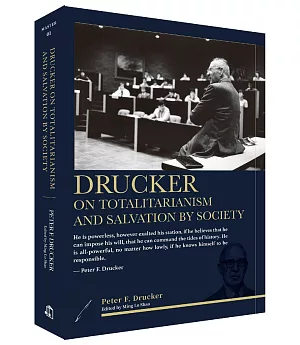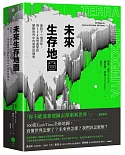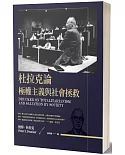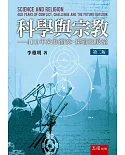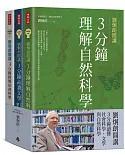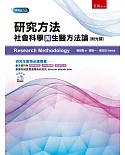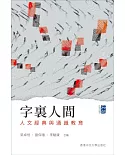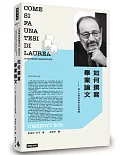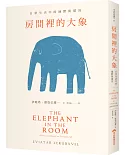TO OUR READERS
I have long wanted to compile a volume that brings together Peter Drucker’s discourses on totalitarianism and salvation by society to make them easily accessible to readers. Now the work has
finally been completed.
The book is comprised of selections from five of Peter Drucker’s works, The End of Economic Man, The Ecological Vision, Landmarks of Tomorrow, Adventures of a Bystander, and A Functioning
Society. My job was to sort the content into nine chapters, draw up titles, and write related introductions
to the chapters. Drucker’s reflections on and critiques of totalitarianism run through most of his works, but they are more focused and systematic in the five books mentioned above. Known as
“the father of modern management”, Peter Drucker had a lifelong hatred of totalitarianism. He studied management because he felt that only the effective management of pluralistic social
organizations—including non-profit organizations, industrial and commercial enterprises, and government agencies—could provide options or alternatives to resist totalitarian rule.
Totalitarianism is an ugly phenomenon in human society and politics, and it is also a terrifying disease. It has caused more suffering to humankind than any other tyranny in history. What it
seeks is to fully and thoroughly manipulate and control every individual, both in body and mind, turning humans not only into animals but also into machines and tools as well. Totalitarianism
aims for absolute power, but no one except the Creator has such power. Hence, it manifests as a state of absurdity and madness in which “the movement (persecution) is everything, yet there is
no purpose.” By its nature, totalitarianism cannot tolerate the existence of even a tiny bit of humanity. The Nazis’ “final solution” (genocide), the mass murder of Jews, is its logical result.
Today, highly developed new technologies are also providing imaginative physical and psychological methods of manipulation, giving those with totalitarian ambitions the means to carry out a
“final solution,” the extinction of unmankind (the extinction of human nature; that is, essentially exterminating the human species.)
Totalitarianism is the result of the failure of “salvation by society”.
History has repeatedly proven that any perfect, or nearly perfect society that claims to have no conflict, no class differences, complete fairness, justice, benevolence, and harmony, is a
utopia. However, using society to eliminate evil in human nature, to save human beings from depravity, and transform them into perfect people, is merely a naïve fantasy. Marxism is the most
recent, most rigorous, and most alluring social rescue plan but also the utmost failure at “salvation by society”. Today, political parties and nations still under the banner of Marxist
communism or socialism have essentially sunken into totalitarianism.
From the perspective of philosophy, “Salvation by society” belongs to the category of absolute rationalism. It originates from human beings’ pride and conceit, is the notion that people can
grasp absolute truth and become the master of everything in the world, including their own destiny.
Tracing their respective roots in different fields of knowledge, people regard their discoveries as the only correctness. They develop various “isms,” including progressivism, scientism,
economic utilitarianism, rational liberalism, nationalism or ethnocentrism, and socialism and communism.
These doctrines may be impeccable logically, and some are emotionally moving. But they all have an a priori hypothesis that cannot be empirically proven or falsified—that is, human beings can
be absolutely rational and can comprehend absolute truth.
Now we finally know this priori hypothesis is wrong, not because of logic’s merits or demerits, but because it simply doesn’t work in real life. So, where is the way out? Peter Drucker
suggested that we return to spiritual values and faith: to experience and recognize there is a higher authority beyond society and above human beings. That authority has already planted
compassion and justice in human’s hearts, what we usually call “conscience.” If humans indeed have a purely rational nature, conscience is its master. With conscience derived from faith,
rationality can perform its beneficial functions. Like the conservatism’s counterrevolutionary movement that took place in the United States and Great Britain more than two hundred years ago,
it shines with the glory of true freedom and genuine rationality: Those movements were constructive, not destructive; they appealed to the love, faith, and humility of Christ. Based on
religious conviction, they firmly rejected human’s absolute rationality, or irrational absolutism, and were solemnly committed to human dignity.
Peter Drucker inherited the tradition of the conservatism’s counterrevolution in the United States and Great Britain. Inspired by observing social and political realities in the United
States, he formed a social concept that differs from a social rescue plan (salvation by society): lesser evils instead of greater good. Although imperfect, it would create a less painful and
tolerable society. Such a society should have the following characteristics:
1. It would replace solipsistic “isms” with an open and tolerant attitude.
2. It would replace centralized and uniform structures with diversified social organization and decentralized power centers.
3. It would replace revolutionary dogma with experimental, gradual improvement and review from time to time.
4. It would replace the rigid social relationship that mutually exclude and negate between individual and the whole, or between the different parts of the society, with the principle of
mutual
dependence and mutual benefit to establish a dynamic equilibrium between the individuals and society, freedom and order.
Such a society would not follow a preset scientific design, nor would it need to rely on charismatic leaders or supermen. It would not be perfect, but it would be better and achievable.
It should be emphasized that Drucker’s openness, tolerance, diversity, and eclecticism are not without a bottom line. The bottom line is that he will never tolerate any form of totalitarian
autocracy. Drucker noted that human beings have two essential qualities that other creatures don’t have—knowledge and power. These attributes can neither be removed nor avoided, and their aims
and uses must be regulated and restricted. He was wary of sovereign states and modern governments. He believed that regardless of whether they adopted a democratic system or an autocratic
system, they were essentially the same but only different in extent, to which they infringed on individual rights and freedoms. Therefore, within every sovereign state and modern government,
there exists a gene for the growth of totalitarianism. When any nation abuses its knowledge and power to violate human rights, the international community must restrict or even deprive it of
its sovereignty.
However, Drucker believed that thus far, the United States may be the only country that has never entirely accepted the concept and system of a sovereign state. Therefore, as the leader of
the free world and developed countries in the West, the United States is best suited to be the first to serve as a model for global actions to resist totalitarianism. Constructive frontiers of
work are more important and decisive than confrontations in the military sphere. Such frontiers are not found in the East, where totalitarianism is firmly rooted and far-reaching, but in the
free world, especially in the West, where the U.S. has an advantage. These “West” frontiers are:
• the educated society;
• the world economy of dynamic development;
• the new political concepts and institutions needed in this pluralist age, internationally,
nationally and locally; and civilizations that can take the place of the East that has vanished.
Ultimately, when the “West” constructive endeavors bring forth the tolerable new society that Ducker envisioned, restoring confidence in freedom and equality, totalitarianism will evaporate
just as the sun rises and the dew will naturally be disappeared, losing its deceptive magic.
For those who are not free today, who unfortunately live under totalitarian rule or in totalitarian revolutionary movements, Drucker offers advice on how to deal with the environment based on
his personal experiences in Europe as a teenager. The first is what not to do. Power has the potential for absolute and comprehensive control, and human nature is weak, unable to withstand the
threats and temptations of power, let alone face the opening of “Pandora’sBox”—totalitarianism. If a person is not ready to stand up, fight, and sacrifice him—or herself for righteousness— and
it is only the few of the best, noblest, and courageous among us who can do that—the wisest thing to do is to break off with totalitarianism.
If some people try to control it with ambition or to make a deal with it by using wisdom and ingenuity, whether out of selfish motives or sincere goodwill, totalitarianism will use them, and
they will become accomplices to its evildoing. In “The Monster and the Lamb” of this book, Drucker termed the former type “monster” and the latter “lamb.” Compared with above two types of
people who voluntarily join the totalitarian camp, the other type of people is often the majority. Although they do not participate in themselves, they acquiesce totalitarianism to abuse
others, they turn their heads, safely latch their door then enjoy “peace and quiet.” Totalitarian careerists derive their greatest encouragement from public indifference, which is an
“endorsement” to behave unscrupulously and do whatever they please.
As for what people should do vs what should not do, Drucker didn’t give an easy answer. He didn’t tell us what proactive actions we can take under the terror, pressure, and false propaganda
of totalitarianism that would effectively weaken totalitarian rule while protecting as much as possible ourselves and families. The situation is similar to the Biblical story of Abraham, who
accepted God’s order to sacrifice his son. Abraham felt compelled to obey God’s command, yet also wanted to save his beloved son Isaac. Considering and formulating what strategies and courses
of action is the responsibility of every entrepreneur, teacher, scholar, media person, government official, professional knowledge worker, and citizen. However, the principles and directions
have been given, and the constraints of the objective environment are also clear. Therefore, we can at least know the understanding of ethics, morals, and performance are required for holding a
position or running a business in a totalitarian country are different than they would be for the same position or business in a democratic country. For example, if you have to set up a
business in a totalitarian country, your goal should not be to contribute to the country’s GDP or tax revenue. Nor should you aid in strengthening its national defense or “stabilizing” its
society. And, not to mention that you should never use the national ideology to educate employees and unite them.
Lastly, I’d like to point out that the book ends on an optimistic note, which Drucker wrote in 1959. He was fifty years old then, vigorous and confident. He saw a pluralistic and autonomous
organizational new society taking shape in the United States and the West. The boom in modern management and the emergence of an educated group of knowledge workers (also known as the “middle
class”) complementing each other at that time. But on the other hand, he also noticed that mankind had begun to master knowledge of the natural science and behavioral science that could end up
destroying humanity. And that kind of knowledge was creating conditions for the exercise of absolute power. In that era of great change, he urged society, human beings, and individuals to
“return to spiritual values and return to religion,” and he emphasized knowledge workers’ responsibilities, because in inherence, “knowledge is power, and power is responsibility.” It is also
because only through the specific and subtle practice of assuming responsibility and thus realizing dignity at the individual level could humankind’s long-standing grand and lofty ideal of
“freedom and equality” be achieved. Hereby, I would like to revisit with the readers on Drucker’s clarion call that he made sixty years ago as encouragement for us all:
“Everyone must be ready to take over alone and without notice, and show himself saint or hero, villain or coward... played out in one’s daily life, in one’s work, in one’s citizenship, in
one’s compassion or lack of it, in one’s courage to stick to an unpopular principle, and in one’s refusal to sanction man’s inhumanity to man in an age of cruelty and moral numbness.
In a time of change and challenge, new vision and new danger, new frontiers and permanent crisis, suffering and achievement, in a time of overlap such as ours, the individual is both
all-powerless and all-powerful. He is powerless, however exalted his station, if he believes that he can impose his will, that he can command the tides of history. He is all-powerful, no matter
how lowly, if he knows himself to be responsible.”
Ming Lo Shao, Editor
October 2020, in Los Angeles, USA

